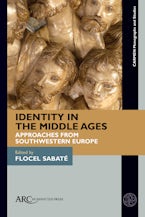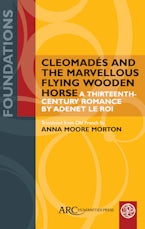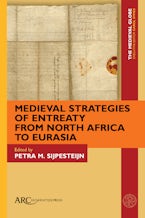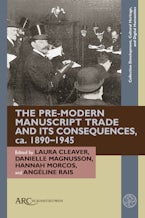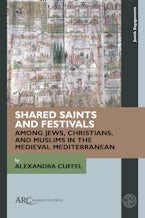- Home
- CARMEN Monographs and Studies
- history
- Identity in the Middle Ages
Identity in the Middle Ages
Approaches from Southwestern Europe
Edited by Flocel Sabaté
Series: CARMEN Monographs and Studies
522 Pages, Trim size: 6 x 9 in
- Hardcover
- 9781641892582
- Published: December 2021
$190.00
£158.00
This book places identity at the centre of a project to better understand medieval society. By exploring the multiplicity of personal identities, the ways in which these were expressed within particular social structures (such as feudalism), and their evolution into formal expressions of collective identity (municipalities, guilds, nations, and so on) we can shed new light on the Middle Ages. A specific legacy of such developments was that by the end of the Middle Ages, a sense of national identity, supported by the late medieval socio-economic structure, backed in law and by theological, philosophical, and political thought, defined society. What is more, social structures coalesced across diverse elements, including language, group solidarities, and a set of assumed values.
Foreword, by Flocel Sabaté
Introduction, by Flocel Sabaté
Chapter 1: Identity as a Historiographical Concept, by Jaume Aurell
Chapter 2: Baptismal Names and Identity in the Early Middle Ages, by Igor S. Filippov
Chapter 3: Personal Names and Identity, by Moisés Selfa
Chapter 4: Gender and Feminine Identity in the Middle Ages, by Ana Maria Seabra de Almeida Rodrigues
Chapter 5: Identity, Memory, and Autobiographical Writing in Twelfth- and Thirteenth-Century French Literature, by Meritxell Simó
Chapter 6: Why Ibn Ḥazm became a Ẓāhirī: Law, Charisma, and the Court, by Maribel Fierro
Chapter 7: Eunuchs in the Emirate of al-Andalus, Cristina de la Puente
Chapter 8: Identity and Minority Status in Two Legal Traditions, by John Tolan
Chapter 9: Medieval Peasants’ Image of Themselves in Relation to the Seigneurial Regime, by Paul Freedman
Chapter 10: Chivalric Identity: Arms and Armour, Text and Context, by Noel Fallows
Chapter 11: The Emergence of a Bourgeois Urban Identity: Late-Medieval Catalonia, by Flocel Sabaté
Chapter 12: Culture and Marks of Identity among the Social Outcasts and Criminals of Late-Medieval Spain, by Ricardo Córdoba
Chapter 13: Identity and the Rural Parish in Medieval Iberia, by Raquel Torres
Chapter 14: The Breakdown of Vertical Solidarity in Late-Medieval Basque Nobility, by José Ramón Díaz de Durana and Arsenio Fernando Dacosta
Chapter 15: Identity-Making Discourses in the Kingdom of Sardinia and Corsica and the Giudicato of Arborea, by Luciano Gallinari
Chapter 16: The Crown of Aragon and the Regnum Sardiniae et Corsicae in the Fourteenth Century: Comparing Institutional Identities, by Alessandra Cioppi
Chapter 17: Political Identity and Patrician Power in the City of Burgos during the Fifteenth Century, by Yolanda Guerrero
Chapter 18: Fiscal Attitudes and Practices and the Construction of Identity in Late Medieval Cuenca, by José Antonio Jara
Chapter 19: Constructing an Identity: Urban Centres and their Relationship with the Crown of Navarre, 1300–1500, by Eloísa Ramírez Vaquero
Chapter 20: Celebration of Identity in Thirteenth to Fifteenth-Century Florence, Milan, and Venice, by Paola Ventrone
Chapter 21: Local and “State” Identitites in Cities of Fifteenth and Sixteenth-Century Northern and Central Italy, by Giorgio Chittolini
Prof. Flocel Sabaté (Univ. of Lleida) has been awarded the main research prizes in Catalonia (Distinció 2000; ICREA 2015) and Doctor Honoris Causa of the Univ. of Cuyo (2014)

